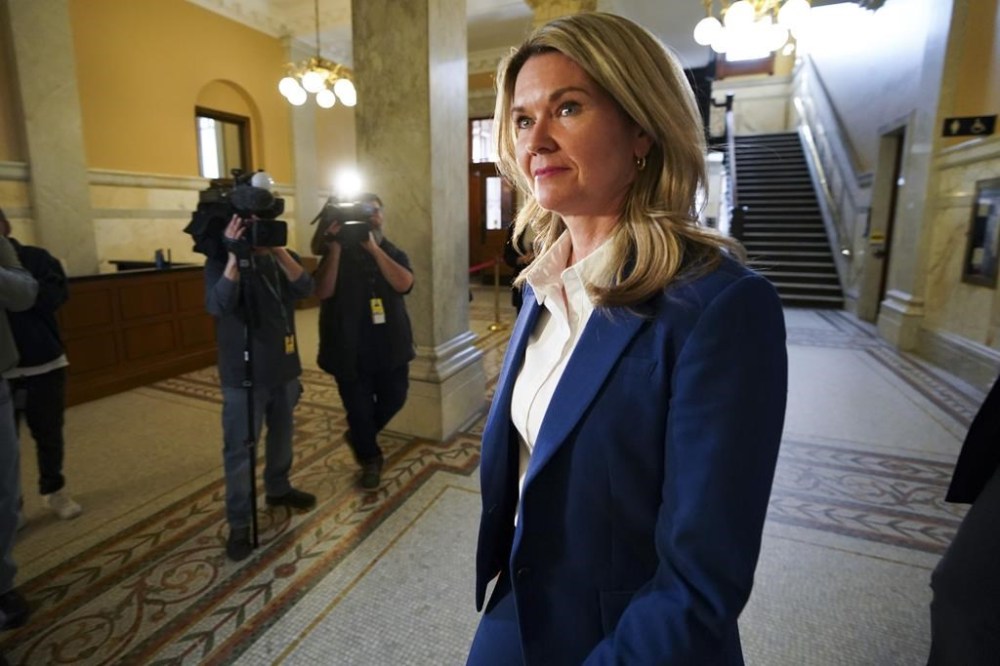Ontario international student permits to go to in-demand areas
Advertisement
Read this article for free:
or
Already have an account? Log in here »
To continue reading, please subscribe:
Monthly Digital Subscription
$0 for the first 4 weeks*
- Enjoy unlimited reading on winnipegfreepress.com
- Read the E-Edition, our digital replica newspaper
- Access News Break, our award-winning app
- Play interactive puzzles
*No charge for 4 weeks then price increases to the regular rate of $19.00 plus GST every four weeks. Offer available to new and qualified returning subscribers only. Cancel any time.
Monthly Digital Subscription
$4.75/week*
- Enjoy unlimited reading on winnipegfreepress.com
- Read the E-Edition, our digital replica newspaper
- Access News Break, our award-winning app
- Play interactive puzzles
*Billed as $19 plus GST every four weeks. Cancel any time.
To continue reading, please subscribe:
Add Free Press access to your Brandon Sun subscription for only an additional
$1 for the first 4 weeks*
*Your next subscription payment will increase by $1.00 and you will be charged $16.99 plus GST for four weeks. After four weeks, your payment will increase to $23.99 plus GST every four weeks.
Read unlimited articles for free today:
or
Already have an account? Log in here »
Hey there, time traveller!
This article was published 27/03/2024 (586 days ago), so information in it may no longer be current.
TORONTO – Ontario will prioritize its newly reduced number of international undergraduate student study permits to post-secondary institutions that offer in-demand programs such as in the skilled trades, child care and health care, the province said Wednesday.
The federal government announced earlier this year it would slash the number of international student permits it would hand out, with Ontario seeing its allotment cut in half.
“We are protecting the integrity of our province’s post-secondary education system by attracting the best and brightest international students to Ontario to study in areas that are critical to our economy,” Colleges and Universities Minister Jill Dunlop said in a statement.

Jill Dunlop, Ontario Minister of Colleges and Universities, walks to a press conference at Queen’s Park in Toronto, on Monday, Feb 26, 2024. Ontario will give the vast majority of its allocated international student study permits to schools that offer in-demand programs such as the skilled trades, child care and health care. THE CANADIAN PRESS/Arlyn McAdorey
“We have been working with post-secondary institutions to ensure international students are enrolled in the programs to support a pipeline of graduates for in-demand jobs.”
Nearly all of the permits will go to publicly assisted colleges and universities, with private career colleges receiving none.
Post-secondary institutions, especially colleges, in the province turned increasingly to international students after Premier Doug Ford’s government cut tuition by 10 per cent in 2019 and froze it there.
The tuition freeze remains in place, the province said last month.
Last month, Dunlop gave a $1.3-billion funding lifeline to post-secondary institutions, but the colleges and universities said they needed double that amount. Many post-secondary institutions are running deficits this year.
Ontario’s budget this week indicated that the lost international student revenue in the college sector, whose finances show up on the province’s books, will total about $3 billion over two years.
The province said 22 of 23 universities will keep study permit applications at 2023 levels, but fewer will be allocated to Algoma University. And 11 of 24 colleges will keep the allotment of applications at the 2023 level. Conestoga College and colleges with public-private partnerships will see the largest decline, the province said.
Colleges Ontario CEO Marketa Evans said colleges are pleased their institutions will receive the bulk of the international study permit applications, but they are still left in the lurch.
The federal government’s student visa changes have already resulted in the “collapse” of the spring cohort at public colleges, and there will be a “severe impact” on the fall term with revenue losses in the hundreds of millions of dollars, Evans said.
“This has resulted in significant efforts to reduce costs, as colleges are not permitted to run unfunded deficits,” she wrote in a statement.
“The consequences include immediate program suspensions and a pause on capital investments that include investments in student housing.”
Universities are being responsible in their recruitment and management of international students, said Steve Orsini, president of the Council of Ontario Universities.
“The decision to cap international undergraduate allocations at 2023 levels will restrict the ability for universities to modestly increase enrolment, which will exacerbate financial pressures on the sector,” Orsini said in a statement.
Federal Immigration Minister Marc Miller has said the cap is in response to a recent surge in international students and is meant to curb bad actors from taking advantage of high tuition fees while providing a poor education.
“Eager to review the details of this announcement in more depth, but this appears to be a very reasonable response by the Government of Ontario,” Miller said on social media Wednesday.
Alex Usher, president of Higher Education Strategy Associates, said the plan is “more promising than I would have expected.”
“It sounds to me like they have done the right thing, which is they’re reserving the biggest losses for the people who have public-private partnerships, plus Algoma, plus Conestoga, which are the institutions that didn’t go the PPP route, but did build whole new campuses just for international students,” he said.
“There’s some basic procedural fairness there.”
This report by The Canadian Press was first published March 27, 2024.

